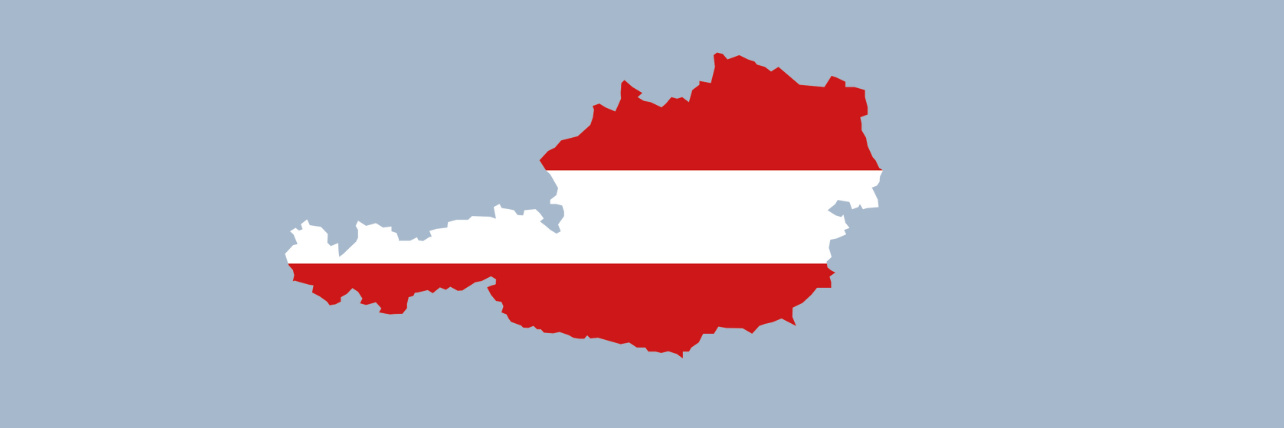Basic rules for asylum seekers
You have applied for protection in Austria. During asylum procedure you will receive accommodation and food through basic welfare support.
This brochure contains important information and rules for asylum seekers.
Austria may have different rules and laws than your country of origin. Make sure you are well informed and comply with the regulations and laws!
If you have any questions and need support, please contact the Infopoint in your neighbourhood (BBE). You can also find more information on the website of the BBU bbu.gv.at.
Austria: First orientation
NUMBER OF inhabitants: 9.2 million
FORM OF GOVERNMENT: Republic, Democracy
CAPITAL CITY: Vienna (2 million inhabitants)
9 FEDERAL STATES: Burgenland, Carinthia, Lower Austria, Upper Austria,
Salzburg, Styria, Tyrol, Vorarlberg, Vienna
HIGHEST MOUNTAIN: Grossglockner (3,798 m)
LONGEST RIVER: Danube (2,888 km)
8 NEIGHBORING COUNTRIES: Germany, Czech Republic, Slovakia, Hungary, Slovenia,
Italy, Switzerland, Liechtenstein
Austria is a member of the European Union (EU)
OFFICIAL LANGUAGE: German
CURRENCY: Euro €
EMERGENCY CALL AND EMERGENCY NUMBERS
Fire Brigade 122
Police 133
Rescue “Ambulance” 144
European emergency number 112

Democracy and the rule of law
Austria is a democracy. In a democracy there are regular free elections.
The people elect their representatives in parliament. These make the laws for Austria.
There are laws that regulate coexistence in Austria. Everyone must abide by them.
Everyone is allowed to express their opinion freely. But the laws must be observed.
State and religion are separate. Religion is not above the law. Everyone is free to choose their religion or have no religion. The largest religious group is Christianity.
Everyone is equal before the law: gender, appearance, nationality and religious affiliation play no role.
Anyone who violates the Austrian laws must expect a penalty. This can be a fine or a prison sentence.
Human rights and human dignity
Every person has human dignity. All people are worth the same.
Every person is equal before the law.
All people have the same human rights.
In Austria there are laws against violence and hatred.
Against anti-Semitism
Anti-Semitism means hostility towards Jews and is directed against Jews, their ethnicity and religion, as well as Jewish institutions.
In Austria, anti-Semitism is forbidden.
Anyone who says or does anti-Semitic things will be punished. There is the Prohibition Act.
Symbols of extremist groups are banned, including the swastika or symbols of the terrorist organization Hamas. For instance, anyone carrying a Hamas flag will be punished.
It is forbidden to incite hatred or violence against people.
Those who discriminate against people because they are different hurt their humanity.
Anyone who incites hatred or violence can be punished.
Police and security
The police ensure security in the country.
The police help in the event of danger and solve crimes. The people in Austria have confidence in the police.
Policemen and policewomen can be recognized by a blue uniform and a blue or a white cap. They have a police identity card.
The police also monitor traffic. For example, if you run a red light or drive through a red light, you can be fined.
The police abide by the Austrian laws.
Always follow the instructions of the police.
Call the police in the event of an accident, crime or danger. For this purpose, there is the police emergency number 133 and the European emergency number 112.
Courts decide on the penalty. The amount of the penalties is regulated by law. Besides fines there are also prison sentences for serious offenses.

What is a criminal offense in Austria?
It is important to know what is permitted in Austria and what is not. Ignorance is by no means a defence against punishment! Here are some Examples of things that can result in a fine or imprisonment.
Violence: It is forbidden to deliberately hurt other people. Psychological violence can also be punished.
Violence in the family: Violence against all family members is prohibited. This applies to women, men and children.
Rape: Rape is forbidden and is severely punished.
Sexual harassment: Touching other people against their will or sexually harass others is prohibited,
and punishable by law.
Violation of decency: Insults and rude behaviour are not permitted.
Noise: Loud shouting or loud music, especially at night, is forbidden. In Austria, there is a night-time rest from 10 pm to 6 am.
Fare dodging: It is forbidden to travel by bus, train or underground without a ticket. Fines will be imposed.
Dangerous threat: It is forbidden to threaten other people in a way that frightens them.
Illegal drugs: Illegal drugs such as cocaine, heroin and marijuana are forbidden.
False statements: It is forbidden to make false statements to a court of law, the police or authorities.
Equal rights for men and women
Man must not rule over woman. The woman must not rule over the man. Everyone can decide for himself.
Both parents take good care of their children and listen to their opinions. They make sure that their children go to school.
A woman decides for herself whether and with whom she has a relationship and whom she marries.
Every woman may choose her husband herself. Every man may choose his own wife.
Forced marriages are prohibited in Austria.
Women and men have the same rights in Austria.
Women can decide for themselves whether they want to go to work. Women meet up with friendsalone in a coffee house or go to the movies alone.
Women may have relationships with other women and men may have relationships with other men.
Women and men can divorce and then marry new partners.
Women can work in all professions. It is important that women get an education and earn money themselves.
Violence is strictly forbidden in Austria and is punished. There must also be no violence in the family against women and children.
Girls and boys have equal education and equal opportunities. There are no differences in upbringing.
Conduct in public
Be considerate of other people in public spaces and on public transport.
Greet the people in a friendly manner. In Austria, it is customary to look into the person's eyes. People often shake hands when greeting each other.
Noise disturbs many people. Speak quietly on public transport and in public buildings.
Use headphones when listening to music on public transport or in public spaces. From 10 p.m. to 6 a.m. is a night's rest in Austria.
Waste is collected separately in Austria. There are separate containers for glass, metal, plastic, paper, organic waste and residual waste. Separate your waste and throw it in the right containers.
Keep public spaces and green areas clean. Do not throw garbage on the ground. Throw cigarette butts in the ashtray or garbage can.
Be punctual, especially for appointments at public offices. Being late is impolite.
Smoking is prohibited in public transportation and buildings.
Smoke only in the smoking areas, for example at the train station. Observe the "No smoking" sign. You are not allowed to smoke there.
Rights and obligations of the asylum seeker
You have the right to apply for asylum. Make sure you are well informed about the asylum procedure. You can find information on the website of the BFA (bfa.gv.at) or the BBU GmbH (bbu.gv.at). If you have any questions, please contact legal advice centres.
You will receive three meals a day, hygiene articles and clothing. If you live in a federal care centre, you will receive pocket money every month.
You will receive a procedure card. Always carry the procedure card with you. The green card means that the procedure has started and you are not allowed to leave your district. The white card means that the asylum procedure is being conducted in Austria. You may now leave the district.
You can work at the Federal Agency for Reception and Support Services and earn money. The work is voluntary.
The BFA house rules apply in the Federal Agency for Reception and Support Services and you must adhere to these house rules.
You must inform the asylum authorities if you change your residential address. You must remain in Austria and may not move your place of residence to another Austrian federal state.
You receive the same medical care as Austrians.
You must notify your accommodation provider if you leave your accommodation for more than 48 hours. The authorities must be able to reach you and you must arrive on time for your appointments.
If you wish to return to your home country, please contact the BBU return counselling service.
What happens after having the asylum decision?

Positive asylum decision:
With a positive asylum decision, you may stay in Austria for three years. With a positive asylum decision you may remain in Austria for three years. If there are still reasons for asylum after three years, your right of residence in Austria will be extended.
If you have been granted subsidiary protection, you may stay for one year.
Persons entitled to asylum and subsidiary protection may work and have free access to the labour market.
You can obtain a passport and are allowed to travel abroad, but not to your country of origin.
You have a right to German courses and integration measures such as values and orientation courses. You must attend these courses.


Negative asylum decision:
If your asylum decision is negative, you must leave Austria.
You can lodge an appeal against a negative asylum decision.
Go to the BBU legal advice center. You will receive support for a voluntary return to your home country.
If you do not leave voluntarily, the authorities can order your deportation.
Tips for learning German
German is the official language in Austria and important for your life in Austria. If you have been granted asylum in Austria, you will need German in everyday life, at work and in offices.
Online courses, exercises and materials for learning German are available free of charge around the clock on the ÖIF learning platform sprachportal.at. Take advantage of these free offers!
Speak German as often as possible in everyday life. When shopping, speak German or ask for directions in German.
Learn German at every opportunity!

